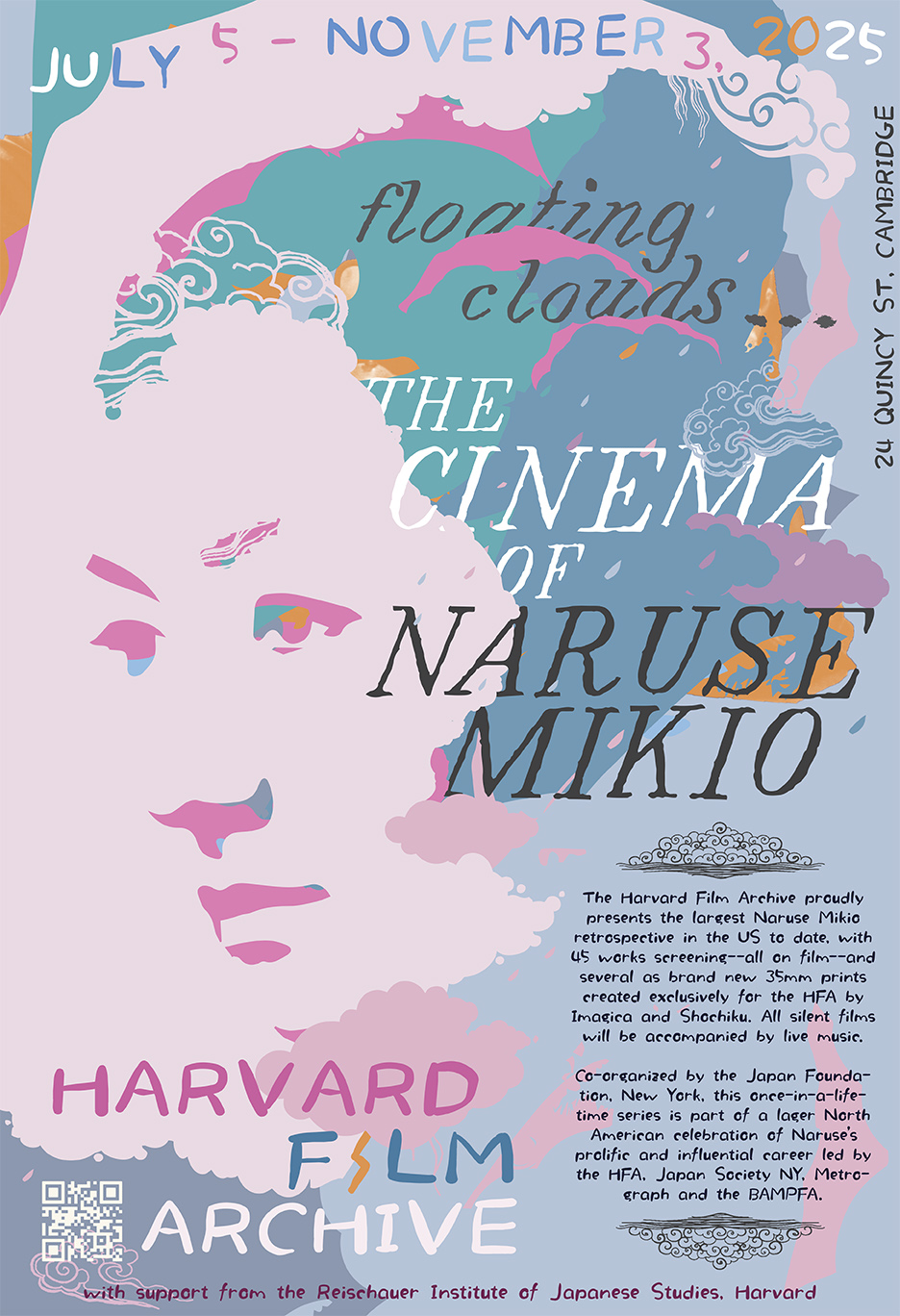Double film screening: The Road I Travel With You (Kimi to yuku michi) and Avalanche (Nadare)
For tickets & detailed information, please click here.
The Road I Travel with You (Kimi to yuku michi): Despite their education, good looks and leisurely lifestyles, brothers Yugi and Asaji have trouble enjoying their largesse because of its tainted source. Born to a mistress and her married lover, the young men live with their formerly kept, youthful-looking mother. She is not particularly bright nor overly maternal, yet has provided substantially for sons who treat her like a sibling. Because of his shameful status, dashing Asaji sulks in night clubs and pushes his true love Kasumi—imprisoned in her home by a controlling family—toward an arranged marriage. With more than a little awkward staginess and a capricious soundtrack, this moody, melodramatic concoction beguiles despite the director’s apparent uneasiness with Miyake Yukiko’s original story. Naruse’s struggles with a constrained production and notably westernized, bourgeois setting are mirrored in his anguished youth who resist suffocating aspects of social strata and formalities while remaining bound by others—whether traditional or modern. Naruse enlivens both his and the characters’ contradictions with charming, curious details, before diving headlong into tragedy of the Shakespearean variety and an ending left generously open. – Brittany Gravely
Directed by Naruse Mikio.
With Okawa Heihachiro, Saeki Hideo, Yamagata Naoyo.
Japan, 1936, 35mm, black & white, 69 min.
Japanese with English subtitles.
Avalanche (Nadare): "Life is full of dissatisfaction and discontent […] To put up with this is the everyday task of being human,” preaches Shiomi Yo as protagonist Goro’s moralizing father in another of Naruse’s subtle ironizations of westernized upper-class excess. Scripted in collaboration with Marxist intellectual Murayama Tomoyoshi, Avalanche was a critical disaster; Naruse himself later called this merry-go-round of wily patrician courtship a failure, while assistant directors Kurosawa Akira and Honda Ishiro rarely mentioned their involvement in the film. Avalanche is by no means the auteur’s supreme visual accomplishment—the action is speech-sodden and the editing lethargic—yet this minidrama is striking in its liberal use of flashbacks, superimposition and thoughtful interior monologue. A semi-translucent tinted screen descends over the image every time a character enters subjective rumination, with dissolves and double exposures serving as two more inventive techniques with which Naruse effectively communicates idiosyncratic states of mind. “In this world, there are many things to complain about,” the aforementioned father resignedly concludes; yet Naruse’s quietly experimental mannerism is not one of these. –Nace Zavrl
Directed by Naruse Mikio.
With Saeki Hideo, Edogawa Ranko, Kiritachi Noboru.
Japan, 1937, 35mm, black & white, 59 min.
Japanese with English subtitles.
Harvard Film Archive Floating Clouds... The Cinema of Naruse Mikio film series co-presented by the Japan Foundation and co-sponsored by the Reischauer Institute
